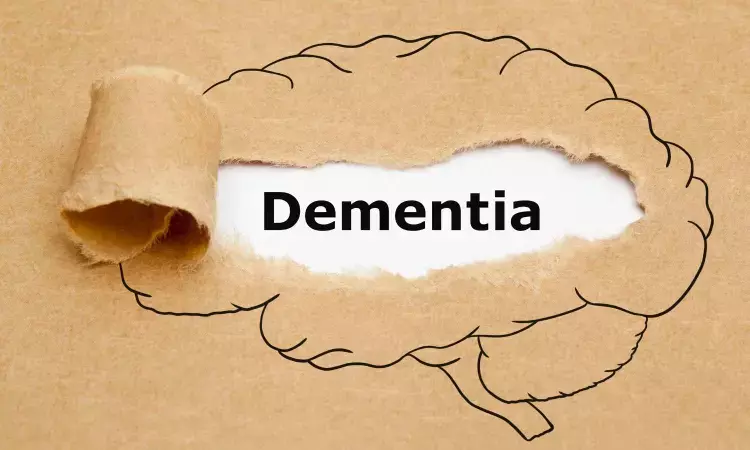- Home
- Medical news & Guidelines
- Anesthesiology
- Cardiology and CTVS
- Critical Care
- Dentistry
- Dermatology
- Diabetes and Endocrinology
- ENT
- Gastroenterology
- Medicine
- Nephrology
- Neurology
- Obstretics-Gynaecology
- Oncology
- Ophthalmology
- Orthopaedics
- Pediatrics-Neonatology
- Psychiatry
- Pulmonology
- Radiology
- Surgery
- Urology
- Laboratory Medicine
- Diet
- Nursing
- Paramedical
- Physiotherapy
- Health news
- Fact Check
- Bone Health Fact Check
- Brain Health Fact Check
- Cancer Related Fact Check
- Child Care Fact Check
- Dental and oral health fact check
- Diabetes and metabolic health fact check
- Diet and Nutrition Fact Check
- Eye and ENT Care Fact Check
- Fitness fact check
- Gut health fact check
- Heart health fact check
- Kidney health fact check
- Medical education fact check
- Men's health fact check
- Respiratory fact check
- Skin and hair care fact check
- Vaccine and Immunization fact check
- Women's health fact check
- AYUSH
- State News
- Andaman and Nicobar Islands
- Andhra Pradesh
- Arunachal Pradesh
- Assam
- Bihar
- Chandigarh
- Chattisgarh
- Dadra and Nagar Haveli
- Daman and Diu
- Delhi
- Goa
- Gujarat
- Haryana
- Himachal Pradesh
- Jammu & Kashmir
- Jharkhand
- Karnataka
- Kerala
- Ladakh
- Lakshadweep
- Madhya Pradesh
- Maharashtra
- Manipur
- Meghalaya
- Mizoram
- Nagaland
- Odisha
- Puducherry
- Punjab
- Rajasthan
- Sikkim
- Tamil Nadu
- Telangana
- Tripura
- Uttar Pradesh
- Uttrakhand
- West Bengal
- Medical Education
- Industry
Antihypertensives may lower Dementia Risk in Late Life among patients with high BP

In a world where the elderly population is on the rise, the question of how to prevent dementia in later life has become increasingly important. A recent study has shed light on a possible answer, suggesting that antihypertensive medications may play a crucial role in reducing the risk of dementia. The findings challenge previous notions about hypertension and dementia, presenting a new perspective on cognitive health in older adults.
The study results were published in the journal JAMA Network Open on September 12, 2023.
The most common risk factor for dementia is hypertension. Midlife hypertension is linked to an increased incidence of both Alzheimer's dementia and dementia from other causes. As there is no supportive literature on the association between hypertension and dementia, researchers conducted a Longitudinal, population-based study to assess the associations of hypertension history, antihypertensive use, and baseline measured BP in late life (age >60 years) with dementia and the moderating factors of age, sex, and racial group.
The study, conducted as an individual patient data meta-analysis of longitudinal cohort studies, involved 34,519 community-dwelling older adults aged 60 to 110 years from 15 different countries. The participants were free of dementia at the outset of the study, with a mean age of 72.5 years and a mean follow-up period of 4.3 years. Participants were categorized into three groups based on hypertension and antihypertensive medication use. Baseline systolic BP (SBP) and diastolic BP (DBP) were considered continuous variables. The primary outcome was all-cause dementia, and sensitivity analyses explored potential moderating factors. Analyses employed Cox proportional hazards models to assess dementia risk, considering baseline blood pressure and other factors while adhering to reporting guidelines.
Notable findings:
- Individuals with untreated hypertension were found to be at a staggering 42% increased risk of developing dementia compared to their normotensive counterparts.
- Individuals with untreated hypertension exhibited only a 26% increased risk of dementia compared to those with treated hypertension.
- Individuals with treated hypertension had no significantly increased dementia risk compared with healthy controls.
- The study found no significant association between baseline systolic BP (SBP) or diastolic BP (DBP) and dementia risk in any of the analyses.
Moreover, the study explored potential moderating factors, such as age, sex, and racial group, but found no significant interactions with any of these variables.
Thus, the study findings hold tremendous promise for public health, particularly in an era where dementia rates are on the rise. Effective strategies for dementia prevention are urgently needed, and this study points the way forward. For individuals aged 60 and above, the use of antihypertensive medications not only helps manage hypertension but may also serve as a powerful tool for reducing the risk of developing dementia.
Further reading: Lennon MJ, Lam BCP, Lipnicki DM, et al. Use of Antihypertensives, Blood Pressure, and Estimated Risk of Dementia in Late Life: An Individual Participant Data Meta-Analysis. JAMA Netw Open. 2023;6(9):e2333353. doi: 10.1001/jamanetworkopen.2023.33353
BDS, MDS
Dr.Niharika Harsha B (BDS,MDS) completed her BDS from Govt Dental College, Hyderabad and MDS from Dr.NTR University of health sciences(Now Kaloji Rao University). She has 4 years of private dental practice and worked for 2 years as Consultant Oral Radiologist at a Dental Imaging Centre in Hyderabad. She worked as Research Assistant and scientific writer in the development of Oral Anti cancer screening device with her seniors. She has a deep intriguing wish in writing highly engaging, captivating and informative medical content for a wider audience. She can be contacted at editorial@medicaldialogues.in.
Dr Kamal Kant Kohli-MBBS, DTCD- a chest specialist with more than 30 years of practice and a flair for writing clinical articles, Dr Kamal Kant Kohli joined Medical Dialogues as a Chief Editor of Medical News. Besides writing articles, as an editor, he proofreads and verifies all the medical content published on Medical Dialogues including those coming from journals, studies,medical conferences,guidelines etc. Email: drkohli@medicaldialogues.in. Contact no. 011-43720751



